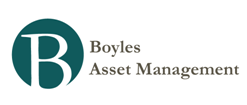Known Unknowns - By Neel Kashkari
We believe investment managers can analyze numerous data sources and apply lessons learned from past economic cycles to make reasonable assessments about the global economic outlook.
We also believe managers can make reasonable judgments about asset classes over the long term and, through rigorous bottom-up research, develop an edge regarding the outlook for individual companies.
However, the market as a whole is much better at aggregating all the information that could affect any of the thousands of companies in the stock market than any investor could possibly be. Hence predictions of where the stock market will close on a given date are likely to be wrong.
People love bold predictions. More precisely: People love people who make bold predictions that are eventually proven correct. We tend to put such soothsayers on pedestals and anoint them heroes. And why shouldn’t we? They were able to see important outcomes that the rest of us missed.
Consider two notable examples:
- In 1969 quarterback Joe Namath boldly guaranteed his underdog New York Jets would beat the Baltimore Colts to win the Super Bowl. An audacious prediction, when Namath successfully led his team to beat the Colts he ensured his place in sports history.
- In 1961 President Kennedy called for the nation to land a man on the moon and return him safely to Earth by the end of the decade. At the time an American hadn’t even orbited the Earth, let alone made it to the moon. Considering today it takes almost a decade just to design a new rocket, Kennedy’s call to action from virtually a blank sheet of paper was truly a “moon shot.”
But our memories tend to be skewed: we remember the heroes but often forget the bold predictions that fell flat. For example:
- What was the name of the pastor who predicted the world would end on May 21, 2011? I can’t remember either. I’m sure I would remember had the world actually ended. (Well, maybe not, but you get my point.)
- In December 2007 sell-side equity strategist Abby Joseph Cohen predicted the S&P 500 would climb from 1,463 to reach 1,675 by the end of 2008. Given the brewing financial crisis, this was a bold call. In fact, the crisis dramatically worsened and the S&P 500 ended 2008 at 903. As the U.S. crisis recedes into memory, people have moved on.
- Links
GMO founder Grantham says markets ‘ripe for major decline’ in 2016 (LINK) A well-known fund manager who foresaw the Japanese crash, the dotcom bubble and the global financial crisis has predicted that markets will be “ripe for a major decline”...
- Michael Pettis: Revisiting My 2011 Predictions
It is still too early for all of these predictions either to have materialized or to have failed, but I thought it might be useful to review them to see whether or not they have been reasonably accurate in describing unfolding events and, if not, how...
- Howard Marks Interviewed By Hugo Scott-gall
Via Zero Hedge: Hugo Scott-Gall: How can we understand investor psychology and use it to make investment decisions? Howard Marks: It's the swings of psychology that get people into the biggest trouble, especially since investors’ emotions invariably...
- How To Win At Forecasting: A Conversation With Philip Tetlock
There's a question that I've been asking myself for nearly three decades now and trying to get a research handle on, and that is why is the quality of public debate so low and why is it that the quality often seems to deteriorate the more important...
- John Mauldin: The Dark Side Of Deficits
Secular Bull and Bear Markets Market analysts (of which I am a minor variety) talk all the time about secular bull and bear cycles. I argued in this column in 2002 (and later in Bull's Eye Investing) that most market analysts use the wrong metric...

